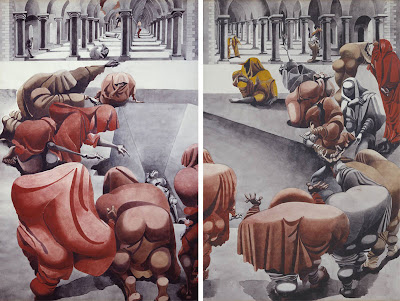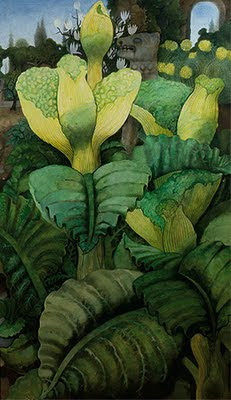Skeletal figures in a bare, unfeeling yet sacred building stare into the grey ground in which rests a stripped skeleton like themselves yet without animation. Death as actor peers down at death as end.
This extraordinary dual painting by Edward Burra was completed in 1940. It speaks of its time when death stalked the world meeting its products everywhere. Both paintings are in Tate Britain's new 'Watercolour' show that wishes (and successfully) shows that watercolour is a diverse medium of great versatility from the particular clarity of illustration (with beautiful examples of flora and fauna painting) to the visionary haunting creations of Burra.
Looking at Burra this time (there are three more: Soldiers at Rye, Mexican Church and a landscape of Northumberland of a simple calm and beauty), I was struck again at what a fine painter he is and for all his refusal to discuss his art (or talk fart as he would put it), he is a painter of uncompromising intelligence, within the language of his paint, he knows precisely what he is saying. He can be both politically and religiously astute. Wake captures the reality of what the world had embarked: we had given ourselves over to death and its simple brutalities and to our imaginative wrappings of it. Both are made clear here.
I had not before truly seen the landscape or flower paintings, having been arrested by the figurative, but they are beautiful and celebratory.


Comments
Post a Comment